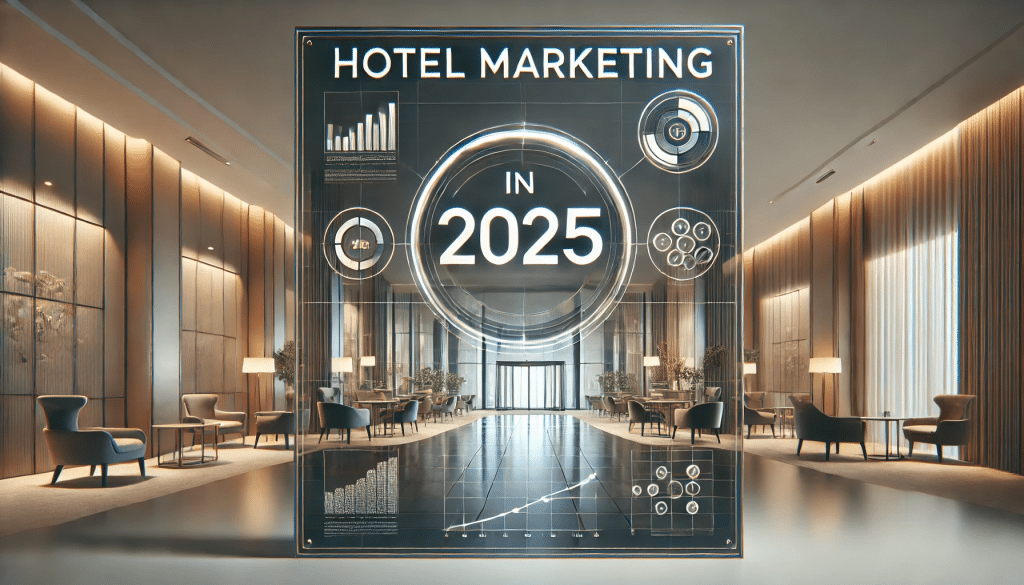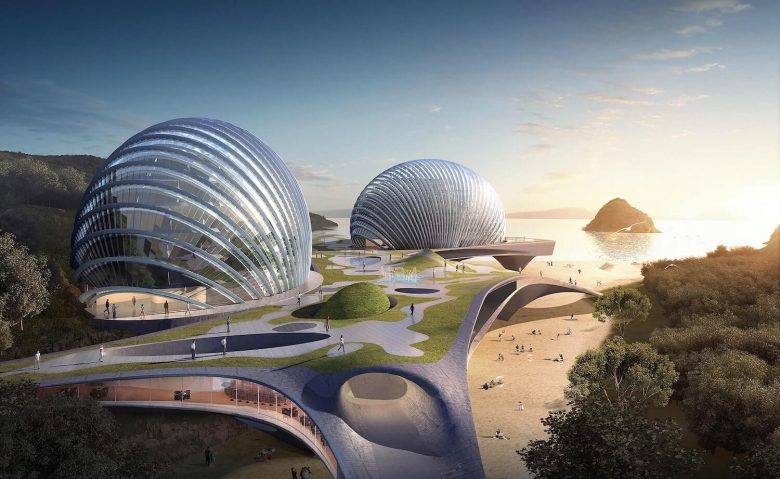The hospitality industry is ever-evolving, with hotel marketing at its forefront. As we move into 2025, a confluence of technological advancements, changing consumer behavior, and shifting market dynamics is reshaping how hotels attract and engage guests. From AI-driven personalization to sustainability-focused campaigns, here’s an in-depth look at the trends and strategies driving hotel marketing in 2025.

Personalization at Scale with AI and Big Data
In 2025, artificial intelligence (AI) has cemented its place in hotel marketing strategies. Hotels leverage AI to analyze customer data, predict booking behavior, and craft hyper-personalized offers. Using AI tools, hotels can tailor email campaigns, suggest personalized vacation packages, or recommend room upgrades—all based on guest preferences.
For instance, if a repeat guest frequently books spa treatments, the hotel might send them an email offering a discounted spa package for their next stay. AI doesn’t just stop at email; it extends to real-time interactions on hotel websites, chatbots, and even in-property experiences.
The Rise of Voice Search and Smart Assistants
Voice search continues to grow as more travelers use smart assistants like Alexa or Google Assistant to plan trips. Savvy hotels are optimizing their online presence to rank in voice search results by focusing on long-tail keywords and conversational content.
By ensuring their websites are voice-search friendly, hotels increase the likelihood of being booked by travelers using phrases like, “Which luxury hotels are pet-friendly near me?” or “What are the top eco-friendly resorts in the Caribbean?”
Experiential Marketing: More Than Just a Stay
In 2025, travelers prioritize experiences over mere accommodations. Hotels are responding by offering curated experiences that align with guests’ interests, such as culinary workshops, adventure tours, or mindfulness retreats.
Marketing these unique experiences involves storytelling across platforms. Hotels are using immersive video content, virtual reality (VR) tours, and influencer collaborations to showcase the allure of these offerings.
Sustainability as a Core Brand Value
Eco-conscious travelers dominate the market in 2025, making sustainability a non-negotiable component of hotel marketing. Guests want transparency about a property’s green initiatives, such as renewable energy use, water conservation efforts, and waste reduction programs.
Hotels are weaving sustainability into their marketing messages through content that highlights their eco-friendly practices. For example, a hotel might showcase its partnership with local farmers to source organic produce or its shift to plastic-free toiletries.
Social Media: Short-Form Videos Take Center Stage
Social media continues to be a crucial platform for hotel marketing, but the focus has shifted to short-form video content. Platforms like TikTok, Instagram Reels, and YouTube Shorts dominate in 2025. Hotels are creating bite-sized videos featuring room tours, behind-the-scenes looks at operations, and guest testimonials to capture attention in seconds.
User-generated content (UGC) also remains a valuable asset. Encouraging guests to share their experiences using branded hashtags or offering discounts for UGC helps create authentic content that resonates with potential travelers.
Direct Bookings: Combatting OTAs
Online Travel Agencies (OTAs) remain a key channel for bookings, but hotels are doubling down on direct bookings to reduce commission costs. Strategies include offering exclusive discounts, loyalty perks, and seamless booking experiences through mobile apps.
Email marketing remains a powerful tool for driving direct bookings. In 2025, hotels are using dynamic email templates that include live pricing, availability updates, and one-click booking buttons, making the process frictionless for potential guests.
Embracing the Metaverse
The metaverse is no longer a futuristic concept but a tangible marketing tool. Hotels are using virtual reality to allow guests to “walk through” rooms and amenities before booking. Luxury hotels, in particular, are tapping into the metaverse to host virtual events, such as wine tastings or art exhibits, which serve as innovative marketing channels.
Data Privacy and Ethical Marketing
With the rise of personalized marketing comes an increased emphasis on data privacy. In 2025, hotels must comply with stricter regulations and adopt transparent data collection practices. Ethical marketing, where guests feel their data is secure and used responsibly, becomes a critical trust-building factor.
Hotels are investing in secure platforms and clear communication about how guest data is used. This transparency fosters trust, encouraging repeat bookings and brand loyalty.
Collaborations and Partnerships
Partnerships remain a cornerstone of hotel marketing. Hotels are teaming up with airlines, credit card companies, and travel influencers to broaden their reach. For instance, offering exclusive vacation packages with airline miles or promoting stays through niche travel blogs can attract diverse customer segments.
Challenges Ahead
While the opportunities are vast, challenges persist. Economic uncertainties and global travel restrictions still affect booking patterns. Hotels must maintain flexibility in their marketing strategies, offering free cancellations or “book now, pay later” options to ease traveler hesitations.
Additionally, standing out in a saturated digital landscape requires continuous innovation and adaptation. Staying ahead in 2025 means not just keeping up with trends but setting them.
Final Thought
The hotel marketing landscape in 2025 is vibrant, driven by technology, creativity, and an understanding of evolving traveler preferences. By embracing AI, sustainability, experiential offerings, and innovative digital tools, hotels can capture the hearts and minds of modern travelers. The key lies in combining personalized experiences with ethical, transparent, and forward-thinking marketing strategies that build trust and loyalty in an increasingly competitive market.
For hotels willing to invest in these trends, the rewards will be higher engagement, increased bookings, and long-term success in the dynamic world of hospitality.

